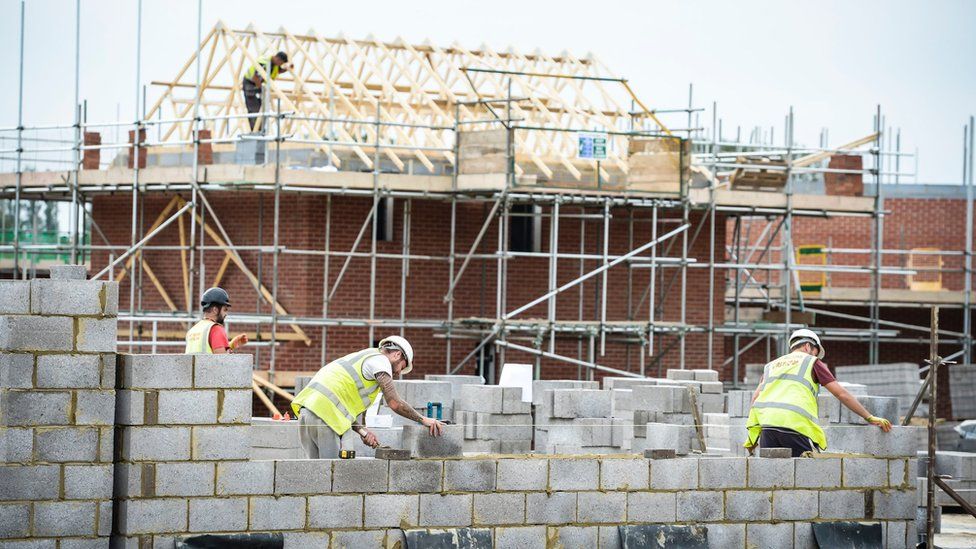General election 2017: Tory housing plan 'paid from existing budget'
-
Published
-
comments

The Conservatives are promising a "new generation" of social housing will be built in England if they win the general election - and say it will be paid for out of existing budgets.
They want to make it easier for councils to purchase derelict land for new rented housing projects.
Defence Secretary Michael Fallon said the money will come from £1.4bn already set aside for infrastructure spending.
Labour said the plans were "political spin, with no substance".
Labour has promised to build a minimum of one million new homes over the next five years, with at least half to be council or housing association properties.
The Conservative plans involve offering "fixed term" council houses to be sold off after 10 to 15 years, with any proceeds reinvested in social housing.
Michael Fallon told BBC One's Andrew Marr Show: "The money is coming from the £1.4bn we earmarked for capital expenditure from the Autumn Statement last year.
"It's not new money but the amount for each council will depend on the deals we strike with places like Manchester and Birmingham to get more social housing built in these areas of a high-enough quality that tenants eventually will be able to buy.
"It's a very attractive policy that will give people a real alternative to waiting and waiting and waiting to get into a council house or flat of their choice."
The Conservatives say they expected "thousands" of homes to be built each year with "hundreds of millions" of pounds invested over the course of the next parliament, without giving precise figures.
Under their proposals, the government would "strike deals" with councils and housing associations, offering direct funding to enable them to build more homes and make it easier for them to acquire land for development.
This would include changing the compulsory purchase rules so councils could buy derelict brownfield land at below market value.
'Housing crisis'
In return, some of the homes would have to have a fixed-term social rent - typically 10 or 15 years - after which they would be sold, with the tenant being given the first option to buy.
The Conservatives said this would allow increases in land and property values over that period to be reinvested in social housing.
But Labour's housing spokesman John Healey said: "There's no commitment on the number of new affordable homes or on new funding.
"Under Theresa May and the Tories we've seen seven years of failure on housing, with the level of new affordable housebuilding now at a 24-year low."
Mrs May could not "sidestep her share of the blame for the Tory housing crisis", he added.
Labour has put housing at the forefront of its election campaign, promising 100,000 new social homes a year with investment from a new national infrastructure fund.
'Firmer foundation'
Anne Baxendale, director of communications, policy and campaigns at Shelter, said: "We're pleased to see cross-party consensus on the need to tackle the housing crisis and welcome pledges to build a new generation of homes to rent.
"This will come as great relief to the millions of ordinary families currently languishing in the private rented sector, especially those on low incomes who spend a huge chunk of their income on sky-high rent.
"Giving councils access to land more cheaply including brownfield sites and allowing them to borrow money to build the homes communities need is a huge step forward.
"We look forward to working with the next government to turn our housing crisis around and give the country's hard-pressed renters a firmer foundation for the future."
In other general election news, Jeremy Corbyn's party said it would impose a tax on financial transactions to raise billions of pounds for public services.
The Lib Dems, meanwhile, are offering a cash incentive to engineering and technology graduates who sign up for the armed forces.
Party leader Tim Farron said the £10,000 "golden handshake" would help address a "critical skills shortfall" in the services.
It would be paid to recruits who committed to serve for five years.